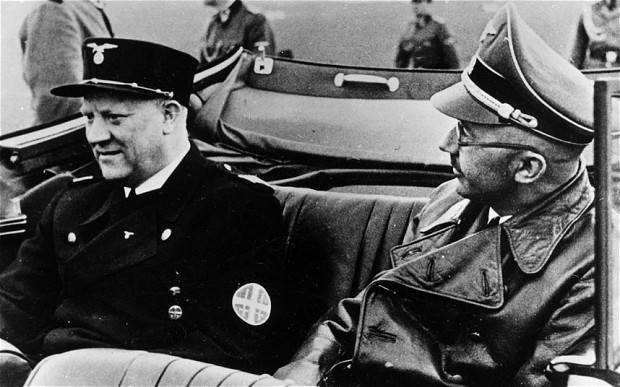
Monday, May 18
If you have been reading this blog, you can’t have missed the fact that we’re seeing plenty of streaming video. One show that we’ve watched a lot—two and a half seasons’ worth—is the Netflix Norwegian political thriller Occupied.
It’s like The Sorrow and the Pity as penned by Greenpeace.
And it’s a bit hard to watch because of its length and also because you are forced to ponder whether you can believe what any of the principals say or even understand what motivates them.
Here’s the idea. Norway, which controls a big portion of the North Sea oil and gas reserves, elects a Green Party government, which says it’s going to turn off the carbon-fuel taps to the rest of Europe.
Immediately, the Russian army takes over Norway’s oil and gas fields. They kidnap the Norwegian prime minister, Jesper Berg—and you see him quickly back down on his campaign pledges. Crucially, the Russians have the support of the European Union, which worries about the effect of a fuel shutoff.
Russian apparatchiki, working out of that country’s Oslo embassy, assert more and more influence over Norway’s affairs. Russia’s strong-willed, manipulative, and wily ambassador enlists the head of the country’s secret police as an ally. She bullies various members of the Norwegian political establishment and E.U. governmental leaders, always seeming to get her way.
A Norwegian resistance movement appears. Its initial rallying cry is “Free Our Soldiers,” since Norwegian coast guardsmen who attempted to liberate one fuel installation were taken prisoner by Russian troops. A more formal group that includes much of the Norwegian military appears: Free Norway. Jesper Berg joins with them.
But a lot of the show’s Norwegian principals collaborate with the Russians. Some believe they have no choice–and invent idealistic reasons for their behavior. Others do so to avoid outright war against the formidable Russian army. Still others simply follow the path of least resistance while also feathering their own nests. Compromise and collaboration infect the whole society. Before long, Free Norway appears subjugated. An opportunist politician becomes the new prime minister.
But just as his life seems in peril, Jesper Berg escapes, first to Poland and then to France. He rallies support from a number of Eastern European countries and begins making his way back to Norway aboard a Polish ship. Russian warships establish a blockade—but he refuses to surrender and the Russians give way. He returns to Oslo, appears to negotiate a coalition government with the puppet P.M.—and then, she is assassinated.
Except for the last part, doesn’t this sound a lot like Nazi-collaborationist Vichy France—and the sharp-elbowed, egomaniacal Charles de Gaulle? Or perhaps like Norway’s own experience with Nazi collaboration: the regime there was headed by Vidkun Quisling, whose very name has become synonymous with collaboration. Many of the Occupied characters see themselves as being motivated by lofty ideals—but we can see that everyone is actually motivated by base self-interest.
The Sorrow and the Pity is Marcel Ophuls’ lengthy 1969 documentary about the Nazi occupation of France and the Vichy regime. That film obliterated the notion, commonly held in France, that almost no French people collaborated with the German occupiers. But in Ophuls’ film, the many collaborators come across as wormy and cowardly. Occupied is actually more nuanced, allowing viewers to see things from the collaborators’ self-justifying points of view.
Tonight’s dinner: pasta with roasted red peppers, goat cheese, and toasted walnuts along with a lettuce and cucumber salad.
Entertainment: two more episodes of Occupied, plus one installment of Our Planet.
